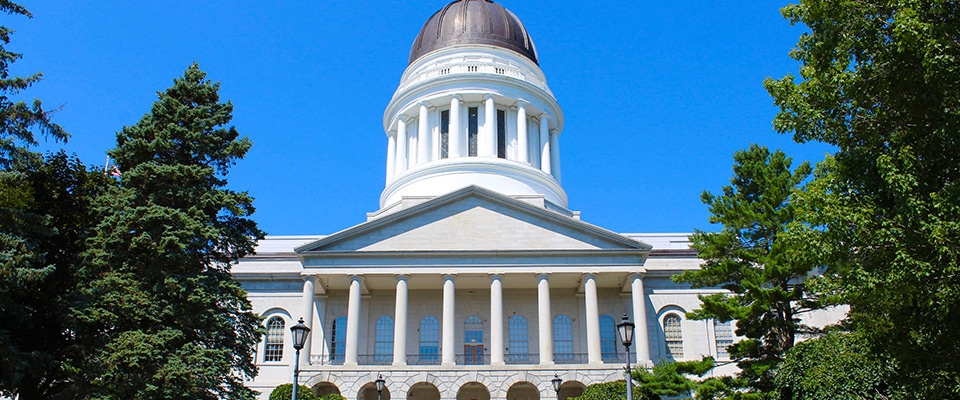The 131st Legislative Session has come to an end, and it was a busy period for our advocacy team! Of the more than 2,000 bills, about 50 were related to biking, walking, and related transportation. We monitored them all and provided testimony on dozens of different pieces of legislation. We worked with community members, local and state governments, and legislators to advocate for the passage of laws that protect cyclist and pedestrian rights and access, and increase safety through infrastructure improvements, education, and awareness.
The BCM’s role at the Legislature was to raise the profile of bike/ped safety and access issues, and to stop legislation that would not make Maine better for bicycling and walking. We were watchdogs, advocates, and influencers. Below you will find an overview of the priority legislation we covered, the testimony we submitted, and the current status of the bills.
BCM Priority Legislation
| LD | Title | Status | Topics | BCM Testimony |
|---|---|---|---|---|
| 31 | Speed Limits at Construction Sites | WIN – Gov Signed | Safety, Infrastructure | BCM Testimony on 31 |
| 209 | Berlin Subdivision Rail Corridor | LOSS – Bill is Dead | Trails, Rail | BCM Testimony on 209 |
| 216 | Storm Water Management Exemption for Trails | WIN – Gov Signed | Trails, Environment | BCM Testimony on 216 |
| 256 | Electric Bike Rebate Program | WIN – Gov Signed | Access, Environment | BCM Testimony on 256 |
| 404 | Mountain Division Line | WIN – Gov Signed | Trails, Rail | BCM Testimony on 404 |
| 527 | Bike-Ped Zones with Reduced Speed Limits | DRAW – Tabled | Safety, Infrastructure | BCM Testimony on 527 |
| 730 | Provide Traffic Safety Education in Schools | LOSS – Bill Did Not Pass – Committee Asked for Further Report – Chance of Revival | Education, Safety | BCM Testimony on 730 |
| 1076 | Traffic Cameras for School and Work Zones | LOSS – Bill is Dead | Education, Safety, Infrastructure | BCM Testimony on 1076 |
| 1156 | Maine Trails Bond | WIN – Gov Signed | Trails, Rail, Environment | BCM Testimony on 1156 |
| 1245 | Registration of Motorized Bicycles, Tricycles, and Scooters | WIN – Bill is Dead – BCM Opposed | Safety | BCM Testimony on 1245 |
| 1450 | Mountain Division Line Funding | WIN – OTP Special Appropriations Table | Trails, Rail | BCM Testimony on 1450 |
| 1551 | Delaware Stop | LOSS – Bill is Dead | Safety | BCM Testimony on 1551 |
| 1634 | Set Certain Lower Motor Vehicle Speed Limits | LOSS – Bill is Dead | Safety, Infrastructure | BCM Testimony on 1634 |
| 1780 | Regulate the Operation of Micromobility Devices | LOSS – Bill is Dead | Access | BCM Testimony on 1780 |
Bicycle and pedestrian advocacy touches on a range of topics, below are links to the primary areas that fall under our legislative purview.
